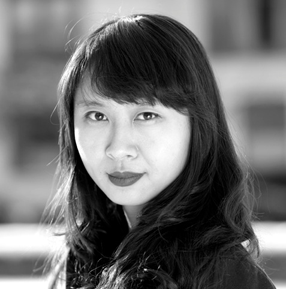The Belladonna of Sadness
Spring in Hell and everything’s blooming.
I dreamt the worst was over but it wasn’t.
Suppose my punishment was fields of lilies sharper than razors, cutting up fields of lies.
Suppose my punishment was purity, mined and blanched.
They shunned me only because I knew I was stunning.
Then the white plague came, and their pleas were like a river.
Summer was orgiastic healing, snails snaking around wrists.
In heat, garbage festooned the sidewalks.
Old men leered at bodies they couldn’t touch
until they did. I shouldn’t have laughed but I laughed
at their flesh dozing into their spines, their bones crunching like snow.
Once I was swollen and snowblind with grief, left for dead
at the castle door. Then I robbed the castle and kissed my captor,
my sadness, learned she was not a villain. To wake up in this verdant field,
to watch the lilies flay the lambs. To enter paradise,
a woman drinks a vial of amnesia. Found in only the palest
flowers, the ones that smell like rotten meat. To summon the stinky
flower and access its truest aroma, you have to let its stigma show.
You have to let the pollen sting your eyes until you close them.
Copyright © 2019 by Sally Wen Mao. Originally published in Poem-a-Day on October 31, 2019, by the Academy of American Poets.
“This poem grew after I watched the 1973 film by Eichii Yamamoto called Belladonna of Sadness, an animated film about a woman who gets raped and gains the magical powers of sorcery, eventually leading to her witch trial and sentence. Supposedly the film draws inspiration from Jules Michelet’s 1862 book ‘La Sorcière,’ a history of witchcraft that looks favorably on witches as healers who go against the oppressive patriarchal powers that govern everything. Essentially, ‘Belladonna’ is a story of revenge. There is a scene in the movie where Jeanne, the protagonist, wakes up after making a deal with the devil and she fully expects to be in hell, and yet she actually finds herself in an idyllic paradise full of flowers, trees, and brooks—all rendered in intensely beautiful and disturbing watercolor stills and animations. In this poem, I wanted to play with the idea of this trope of transformation, witchcraft, and duality—and the feminine desire for revenge after unimaginable suffering.”
—Sally Wen Mao

